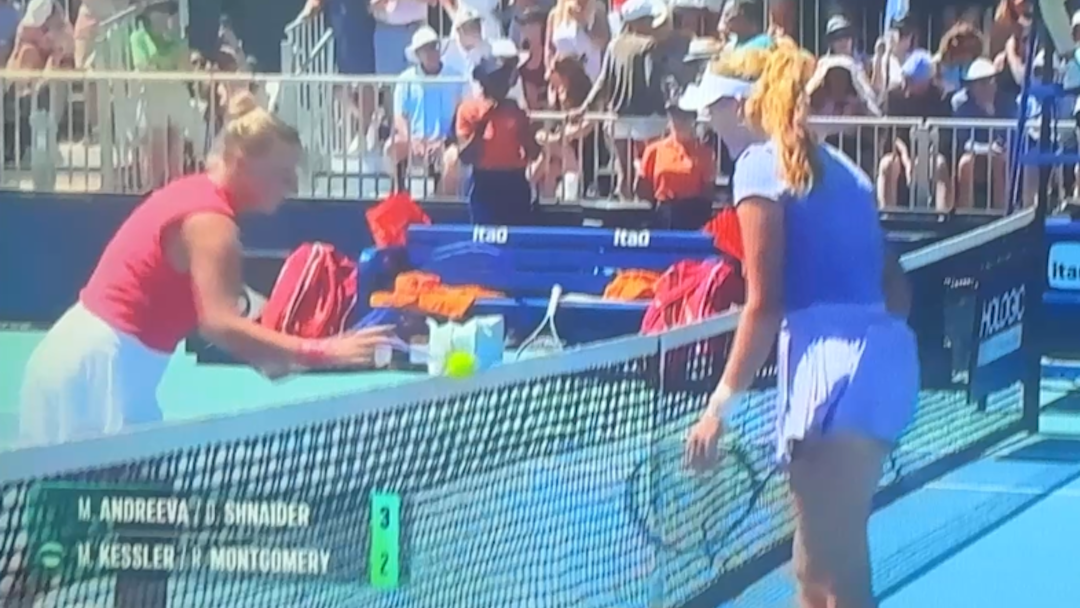This weekend I have been overthinking USTA League roster sizes. Bloated rosters are one mitigation strategy for avoiding the harsh penalties imposed should a team have to default a plurality of lines. Ironically those super-sized teams also make it a challenge for captains to manage the logistics and personalities of the players. Doing that over the course of a 2-3 month USTA season is one reason why captaining USTA League teams can be a PITA.
One obvious solution to bloated rosters is to simply have more teams. Temporarily setting aside the penalties associated with whole-team defaults, creating more teams hinges on incentivizing many more people to step up and captain teams. That requires a person who is willing to do three things:
- Alienate the current captain by departing their team.
- Irritate all the other league captains by siphoning off enough of their players to form a viable roster.
- Be willing to manage a team over the course of a 2-3 month season in which every other captain is pissed off over the mere existence of their team.
The solution to the problem is to disrupt the system in a way that makes mega-teams impractical. This is easily done via a mechanism that the USTA is already using for some “boutique” forms of League play. Specifically, I am talking about “Weekend Events.”
A USTA League weekend event is a team tournament that is held over a single three-day weekend. Essentially the weekend events are a four-week season with playoffs compressed into 2-3 days. Team rosters are necessarily small for weekend events because the seasons are short and there are limited opportunities to play. A captain isn’t going to register a player on their team who is not available for that specific weekend. Similarly, players are not likely to pay the registration fee it if is obvious that they won’t be in town for any of the matches.
Captaining teams for weekend events is logistically more simple than lengthy seasons. Additionally, the smaller roster sizes of weekend events and constrained timespans mean that teams will be much more dynamic from season to season. A captain cannot be irritated at a former player that captains an opposing team that was never in the mix for their weekend roster. Due to simple player availability, membership on these teams will be much more dynamic.
I believe that the USTA should explore conducting “boutique” divisional formats of League Play as weekend events. Everything other than 18+ NTRP divisions falls under my definition of “boutique.” Since this format is already in play for Tri-Level and Combo, it is not an out-of-the-box crazy idea.
So… Hold my beer.
Each qualified CTA (roughly city in Texas) should be authorized to conduct one Weekend Event for any boutique league. However, those weekend events should be required to be open to valid teams from any CTA in Texas. For example, if Abilene decided to host a weekend event for 55+ USTA League, teams from Lubbock, Midland, and Wichita Falls could travel to compete in those events. Whoever wins represents the hosting CTA at Sectionals.
Additionally, the larger CTAs should not be excluded from participation. For example, Dallas weekend events should be open to any valid teams from across the Section. Similarly, teams from larger CTAs desiring a second chance for Sectional qualification or simply more match play could travel to a weekend event in one of the smaller market cities.
A uniform procedure for capping the number and selection criteria for teams would clearly be needed. However, there are instances where this is already in place. For example, Dallas constrains the number of teams that can participate in their weekend events. Notional selection criteria could prioritize local area teams, then teams with local area players, then teams from out of the area in a random draw.
Like any crazy idea, the devil is in the details. However, the potential benefits should not be discounted. Teams from small CTAs that cannot muster enough local participation could attract enough out-of-area competition to conduct local play. Additionally, this idea eliminates the need for separate qualification events. Opportunities to play could literally abound throughout the Section.
I also love this idea because a handful of players from smaller cities participate in leagues in the larger areas simply to get some match play. For example, some players from Wichita Falls routinely make a four-hour roundtrip commute to Dallas and Ft Worth to play on those League teams. That travel overhead isn’t viable for someone from say… Lubbock, which is much further away. However, the travel and hotel might be worth it for a full weekend of match play.
I think that moving the boutique formats of USTA League play to weekend events is an idea worthy of consideration. This format would break up the mega-rosters yet create more playing opportunities in a condensed timeframe. Additionally, since Leagues wouldn’t always be in season, this might free up some space and time for players to engage with the tournament ecosystem.
I would love to see more Leagues move to the weekend format of play and be opened to valid teams from external cities. This idea makes the most sense from the foundational belief that the purpose of USTA League is to facilitate play at the local level. I am anticipating that significant pushback will come from the perspective that the purpose of USTA League is to progress to the Sectional Championships. However, creating the opportunity to engage in the USTA League ecosystem for ALL players in the Section is what is truly most important. We should prioritize accordingly.
(Takes beer back.)
The comment that sparked this exploration of USTA League roster size expressed a desire for a rule that all players on a team should be required to be in attendance at Sectionals. The idea was that this would mitigate the “rested sub” advantage that larger teams have at the Championships. It simply will not happen due to the sheer administrative overhead required for the roll call and valid excuse tracking for every match.
Rather than imposing new regulations for large teams, my preference is to mitigate the reasons that cause these mega-teams to form in the first place. The USTA League system needs to incentivize smaller roster sizes which will ultimately change the overall culture for the better.
Step 1 of recovery is the recognition that oversized roster sizes are a foundational problem for USTA League play. It has created an undesirable culture in the larger cities while choking off participation in the smaller CTAs. Unfortunately, I don’t think that there is widespread acceptance of that as a root cause issue… yet.




Love this idea! First year in a while I’m not playing league because our league matches are in sundays and I travel for my daughters vball or tennis tournaments. If it was all in one weekend, I wouldn’t mind missing one vball weeekend to do a weekend of league.
Could be a challenge for players who have children with weekend activities.
For local players, I actually think it could work even better. A weekend event has many match times available so there is more of a chance to accommodate both family activities and still compete for their team. Alternatively, for people that have to travel events would surely be missed, but at least that would be consolidated into a single weekend. In reality, there are a lot of life events that would preclude people from competing on a specific weekend. (Weddings, graduations, vacations, etc.) I am OK with players having to miss league play opportunities if their schedule doesn’t allow for it. That opens up playing opportunities for the other people who are actually available.